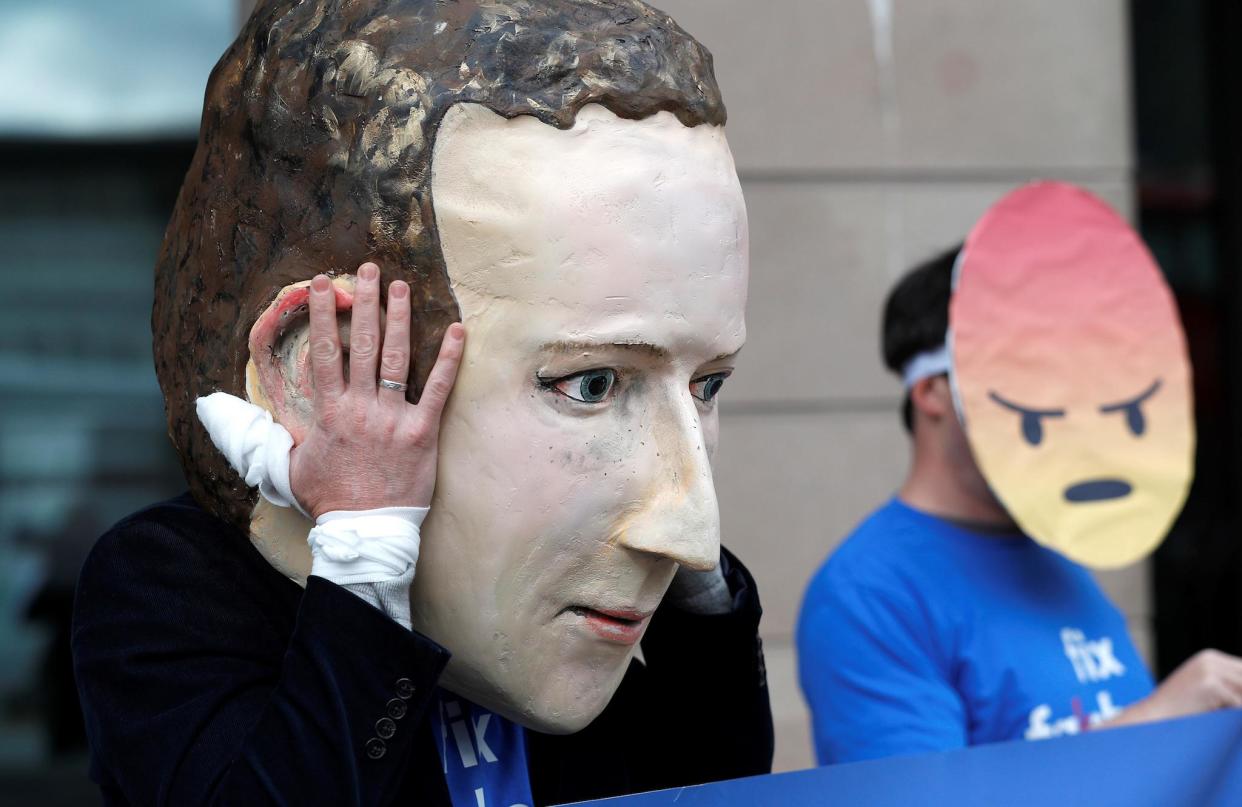Facebook will vet and label political ads to try and stop them being used to undermine elections, company says

Facebook will check political ads and label them to try and stop the site being used to derail elections, the company has said.
New measures will be introduced to force ads to be clearly labelled by June this year, the company's chief technology officer told a parliamentary committee.
The Digital, Culture, Media and Sport Committee had hoped for Mark Zuckerberg to attend the meeting to defend his company against charges it had unethically harvested data about its users. But he said that he would not come, and sent Mike Schroepfer, one of his deputies, instead.
Mr Schroepfer told the committee that it would now push ads through an authorisation process to check they are legitimate and not being used to undermine the election, he said. The site will also add messages about who had paid for them, he said.
Such a plan is an attempt to stem the damage being done by the ongoing data abuse scandal around Facebook. The site has been accused of taking data and making it available to political marketers and campaigns, which may have had an effect on both the Trump election and the Brexit referendum.
"I want to start by echoing our CEO, Mark Zuckerberg: what happened with Cambridge Analytica represents a breach of trust, and we are deeply sorry. We made mistakes and we are taking steps to make sure it doesn't happen again," Schroepfer wrote.
Earlier this month, Zuckerberg apologised to U.S. senators for issues that have beset Facebook, including shortcomings with data protection.
But the 33-year-old internet mogul managed to deflect calls for any specific promises to support possible congressional regulation of the world's largest social media network and other U.S. internet companies.
Schroepfer was filling in for Zuckerberg in front of British lawmakers on Thursday after the Facebook chief declined to appear himself, a decision the parliamentary committee chairman had described as astonishing.
Facebook has said that the personal information of about 87 million users might have been improperly shared with political consultancy Cambridge Analytica, which worked on Donald Trump's 2016 presidential election campaign.
British lawmakers have also raised concern over the use of social media in Britain's referendum vote in 2016 to leave the European Union.
Schroepfer said it was clear Facebook had not done enough to ensure its tools could "potentially being used for harm" or take a broad enough view of its responsibility.
As many as one million British Facebook users may have had their data harvested because they were connected to U.S. users targeted in data passed to Cambridge Analytica, Schroepfer said.
Facebook attracts 40 million monthly active users in Britain, he wrote, representing about 60 percent of the entire population.
Schroepfer told the committee his company would crack down on manipulative political advertising techniques ahead of local elections in Britain in 2019.
Steps would include vetting who paid for political ads and allowing users to view all advertising from different campaigns, not just ones targeted at them in their own news feed.
"This is not an issue of revenue for us," he said. "Political advertising is a very small, low single-digit percentage of our overall advertising, so the decisions here have nothing to do with money or revenue."
Additional reporting by Reuters

 Yahoo News
Yahoo News 
